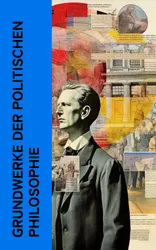The object of this book is to give the English-speaking public, in a convenient form, as faithful and readable a copy as the translator was capable of making of a document unique in the literature of antiquity. Whether we regard the correspondence of Cicero from the point of view of the biographer and observer of character, the historian, or the lover of belles lettres, it is equally worthy of study. It seems needless to dwell on the immense historical importance of letters written by prominent actors in one of the decisive periods of the world's history, when the great Republic, that had spread its victorious arms, and its law and discipline, over the greater part of the known world, was in the throes of its change from the old order to the new. If we would understand—as who would not?—the motives and aims of the men who acted in that great drama, there is nowhere that we can go with better hope of doing so than to these letters. To the student of character also the personality of Cicero must always have a great fascination. Statesman, orator, man of letters, father, husband, brother, and friend—in all these capacities he comes before us with singular vividness. In every one of them he will doubtless rouse different feelings in different minds. But though he will still, as he did in his lifetime, excite vehement disapproval as well as strong admiration, he will never, I think, appear to anyone dull or uninteresting. In the greater part of his letters he is not posing or assuming a character; he lets us only too frankly into his weaknesses and his vanities, as well as his generous admirations and warm affections. Whether he is weeping, or angry, or exulting, or eager for compliments, or vain of his abilities and achievements, he is not a phantasm or a farceur, but a human being with fiercely-beating pulse and hot blood...

Philosophie der Stoiker : Handbuch der Moral, Von den Pflichten, Vom Redner, Vom glückseligen Leben, Selbstbetrachtungen
Mark Aurel, Seneca, Epiktet, Marcus Tullius Cicero
book
Reden gegen Verres : Die Kunst der Rhetorik in Rechtswissenschaft
Marcus Tullius Cicero
book
50 Meisterwerke der Philosophie : Metaphysik, Das Gastmahl, Bhagavadgita, Tractatus logico-philosophicus, Kritik der reinen Vernunft, Also sprach Zarathustra, Selbstbetrachtungen von Marcus Aurelius
Ludwig Wittgenstein, Edmund Husserl, Karl Marx, Søren Kierkegaard, Friedrich Nietzsche, Ralph Waldo Emerson, John Stuart Mill, Georg Wilhelm Friedrich Hegel, Friedrich Schelling, Johann Gottlieb Fichte, Immanuel Kant, John Locke, Montesquieu, Jean Jacques Rousseau, David Hume, Gottfried Wilhelm Leibniz, Baruch Spinoza, Konfuzius, Laotse, Platon, Xenophon, Aristoteles, Marcus Tullius Cicero, Seneca, Epiktet, Marc Aurel, Plotin, Thomas von Aquin, Nicolaus von Cues, Erasmus von Rotterdam, Niccolò Machiavelli, Tommaso Campanella, Martin Luther, Giordano Bruno, Samuel von Pufendorf, Abbé Castel de Saint-Pierre, Michel de Montaigne, René Descartes, Francis Bacon, Blaise Pascal
book
Grundwerke der politischen Philosophie : Der Staat, Der Gesellschaftsvertrag, Der Fürst, Utopia, Manifest der Kommunistischen Partei, Geschichte der Socialdemokratie, Parlamentarischer Kretenismus
Platon, Aristoteles, Marcus Tullius Cicero, Niccolò Machiavelli, Tommaso Campanella, Thomas Morus, Samuel von Pufendorf, Abbé Castel de Saint-Pierre, Jean Jacques Rousseau, Montesquieu, Immanuel Kant, Friedrich der Große, Johann Gottlieb Fichte, Karl Marx, Friedrich Engels, Wilhelm von Humboldt, Friedrich Christoph Dahlmann, Franz Mehring, Johann Most, John Henry Mackay, Rosa Luxemburg, Erich Mühsam
book
Essenzielle Klassiker der politischen Philosophie : Der Staat, Der Gesellschaftsvertrag, Der Fürst, Utopia, Manifest der Kommunistischen Partei, Geschichte der Socialdemokratie
Niccolò Machiavelli, Montesquieu, Friedrich der Große, Platon, Aristoteles, Marcus Tullius Cicero, Tommaso Campanella, Thomas Morus, Samuel von Pufendorf, Abbé Castel de Saint-Pierre, Jean Jacques Rousseau, Immanuel Kant, Johann Gottlieb Fichte, Karl Marx, Friedrich Engels, Wilhelm von Humboldt, Friedrich Christoph Dahlmann, Franz Mehring, Johann Most, John Henry Mackay, Rosa Luxemburg, Erich Mühsam
book
Reden gegen Verres: Ciceros meisterhafte Rhetorik in seiner bekannteste Gerichtsrede : Die Kunst der Rhetorik in Rechtswissenschaft
Marcus Tullius Cicero
book
Vom Redner : De oratore: Rhetorisches Hauptwerk der Antike
Marcus Tullius Cicero
book
Gesammelte Werke: Philosophische und Rhetorische Schriften : Meisterwerke antiker Philosophie und Rhetorik
Marcus Tullius Cicero
book
Philosophie und Politik: Staatstheorien von Platon, Cicero, Machiavelli und Thomas Morus : Die Vielfalt politischer Theorien in literarischen Meisterwerken
Niccolò Machiavelli, Marcus Tullius Cicero, Platon, Thomas Morus
book
Die Ethik: Gesammelte Schriften (Vom höchsten Gut und vom größten Übel + Von den Pflichten + Cato oder Von dem Greisenalter + Lälius oder von der Freundschaft)
Marcus Tullius Cicero
book
Paradoxe der Stoiker : Philosophie, Ethik und Selbstdisziplin der Stoiker
Marcus Tullius Cicero
book
Die Ethik: Gesammelte Schriften : Vom höchsten Gut und vom größten Übel + Von den Pflichten + Cato oder Von dem Greisenalter…
Marcus Tullius Cicero
book
